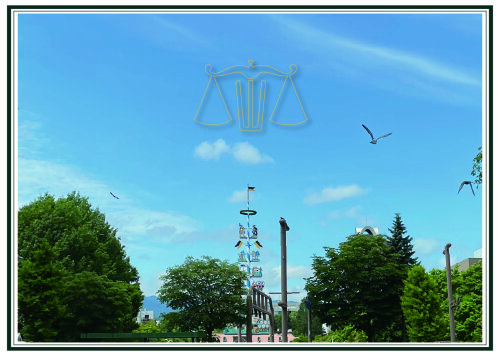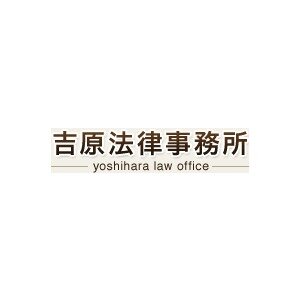Best Wrongful Death Lawyers in Sapporo
Share your needs with us, get contacted by law firms.
Free. Takes 2 min.
List of the best lawyers in Sapporo, Japan
About Wrongful Death Law in Sapporo, Japan
In Sapporo, Japan, the concept of wrongful death is governed by national laws that apply across the entire country. Japanese civil law recognizes wrongful death as a scenario where an individual dies due to the negligence or intentional action of another party. Such cases may arise from various circumstances, including medical malpractice, accidents at work, traffic collisions, or other harmful events where a third party may be held liable.
Why You May Need a Lawyer
There are numerous situations where seeking legal assistance for a wrongful death claim is necessary in Sapporo. For instance, navigating the complex legal process requires knowledge of judicial procedures and the ability to negotiate or litigate effectively. A lawyer can help if there are disputes over the cause of death, if the responsible party denies liability, or if there are complications in calculating or securing the compensation owed to the deceased’s family. Professional legal counsel can also be crucial when dealing with insurance companies, ensuring that the rights of the survivors are fully protected and advocated for.
Local Laws Overview
The primary laws governing wrongful death in Japan are found in the Civil Code (Minpō), which deals with tort liability. Under these laws, the family of the deceased may be entitled to claim compensation for both economic and non-economic damages from the party at fault. These include funeral expenses, lost wages, grief, and suffering. However, wrongful death claims in Japan tend to have a shorter statute of limitations compared to some other countries, so acting promptly is crucial. Furthermore, the amount of compensation awarded can vary significantly based on the circumstances, with courts considering the deceased's age, income, and the level of dependency of the surviving family members.
Frequently Asked Questions
What qualifies as a wrongful death in Sapporo?
Wrongful death in Sapporo qualifies as situations where an individual’s death results from another party's negligence or intentional harmful act. This could be due to various scenarios such as traffic accidents, medical malpractice, or workplace incidents.
Who can file a wrongful death claim in Sapporo?
Typically, the immediate family members of the deceased, like spouses, children, or parents, are eligible to file a wrongful death claim. In some cases, other relatives who were financially dependent on the deceased may also have a claim.
How long do I have to file a wrongful death claim in Sapporo?
The statute of limitations for wrongful death claims in Japan is generally three years from when the claimant becomes aware of the death and the potential liable party, or twenty years from the date of the wrongful act, whichever is shorter.
What kind of damages can be claimed in a wrongful death case?
You may claim both economic and non-economic damages, which cover funeral costs, lost earnings, loss of companionship, and the emotional suffering of the surviving family members.
How is compensation for wrongful death calculated?
Compensation is calculated based on several factors including the deceased's age, earning potential at the time of death, health before the incident, and the level of financial dependence the survivors had on the deceased.
Is there a cap on wrongful death compensation?
There is no statutory cap on wrongful death compensation in Japan, but courts have developed guidelines and precedents on the amounts typically awarded.
Will the wrongful death case go to court?
While some wrongful death claims are settled out of court, if a settlement cannot be reached, the case may proceed to litigation. A lawyer can help manage court proceedings and develop a compelling case.
How does a wrongful death claim affect criminal prosecution?
A wrongful death claim is a civil action and is separate from any criminal prosecution of the responsible party. A claim can proceed regardless of the outcome of criminal proceedings.
Can I still claim wrongful death if the deceased was partly at fault?
Japan follows a contributory negligence system, meaning that compensation may be reduced if the deceased is found to be partly at fault for their own death.
How can I find a reputable wrongful death lawyer in Sapporo?
Seeking referrals, researching local legal directories, or contacting the Sapporo Bar Association can help you find a lawyer with experience in wrongful death claims.
Additional Resources
For those seeking more information on wrongful death laws and resources in Sapporo, the Sapporo Bar Association can be an invaluable resource. They can help in finding legal representation and provide guidance on the legal process. National support organizations dedicated to helping families of wrongful death victims may also offer advice and assistance.
Next Steps
If you require legal assistance for a wrongful death matter in Sapporo, the first step is to consult with a lawyer who specializes in civil law and has experience with wrongful death cases. Building a strong case requires gathering pertinent evidence, documenting the impact of the loss on your family, and navigating Japan’s legal system. The right attorney will be able to assess the merits of your claim, explain the legal process, and support you through every stage of seeking justice for your loved one’s untimely death.
Lawzana helps you find the best lawyers and law firms in Sapporo through a curated and pre-screened list of qualified legal professionals. Our platform offers rankings and detailed profiles of attorneys and law firms, allowing you to compare based on practice areas, including Wrongful Death, experience, and client feedback.
Each profile includes a description of the firm's areas of practice, client reviews, team members and partners, year of establishment, spoken languages, office locations, contact information, social media presence, and any published articles or resources. Most firms on our platform speak English and are experienced in both local and international legal matters.
Get a quote from top-rated law firms in Sapporo, Japan — quickly, securely, and without unnecessary hassle.
Disclaimer:
The information provided on this page is for general informational purposes only and does not constitute legal advice. While we strive to ensure the accuracy and relevance of the content, legal information may change over time, and interpretations of the law can vary. You should always consult with a qualified legal professional for advice specific to your situation.
We disclaim all liability for actions taken or not taken based on the content of this page. If you believe any information is incorrect or outdated, please contact us, and we will review and update it where appropriate.










